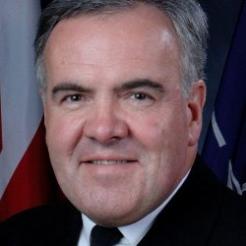Richard Leaman, chief executive of Guide Dogs for the Blind has hit back at accusations from chief executive of RNIB, Lesley-Anne Alexander that Guide Dogs is “insular” and unwilling to merge due to fears its fundraising will be damaged.
Leaman says Guide Dogs support sharing a central office with RNIB and Action for Blind People, but the other charities have not taken up the proposal.
RNIB's Alexander had criticised Guide Dogs at a Knowledge Peers panel session on collaboration this week, where she said RNIB was open to merging with Guide Dogs as it did a fantastic job. But, she claimed, the charity was “insular” and put up thinking that was not true for not merging, such as damage to its fundraising.
Leaman of Guide Dogs said he was extremely surprised by Alexander’s comments:
“Guide Dogs has willingly discussed collaboration with RNIB at the highest levels over the last year, and we remain committed to closer working with them,” he said.
He said the charity supported a KPMG report which proposed a central office to co-ordinate joint working between RNIB, Action for Blind People and Guide Dogs.
"We had meetings last year to discuss closer collaboration and the proposal put forward by independent consultants, which we supported, has not been taken up by our partners. But we are very keen to continue to collaborate closely and we are open to ideas,” he said.
He added that Guide Dogs was already working in collaboration with 70 local societies, and had recently embarked on joint work with RNIB in the areas of technology, a web portal, and research.
“We have also signed a memorandum of understanding with Action for Blind People to delineate service provision, and are actively developing a consortium in the South West. To describe Guide Dogs as insular, simply does not reflect reality.”










